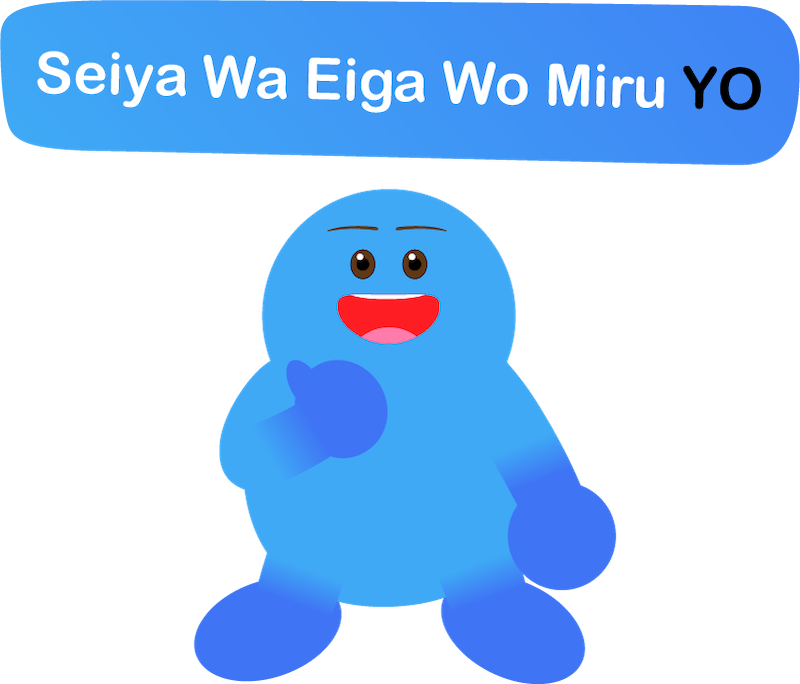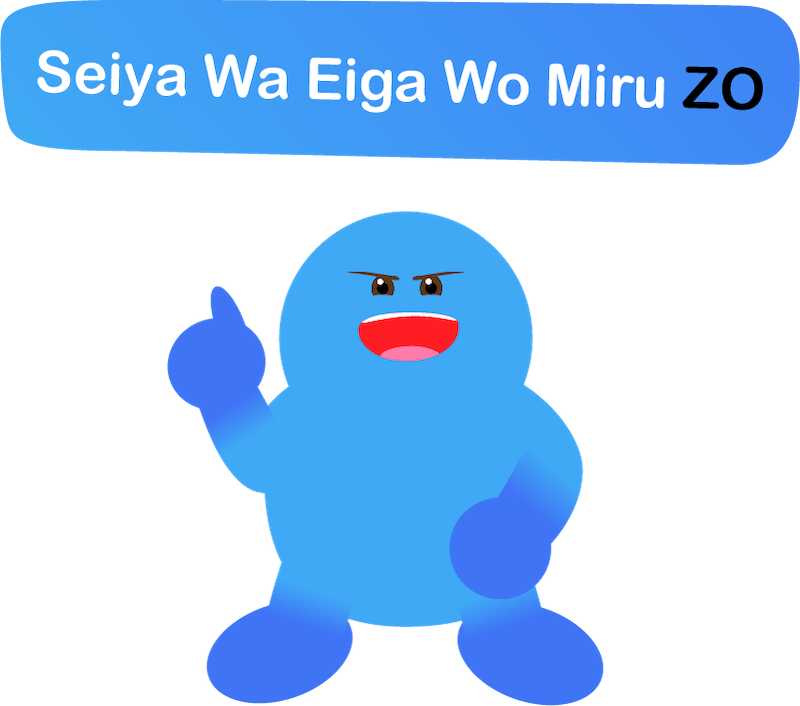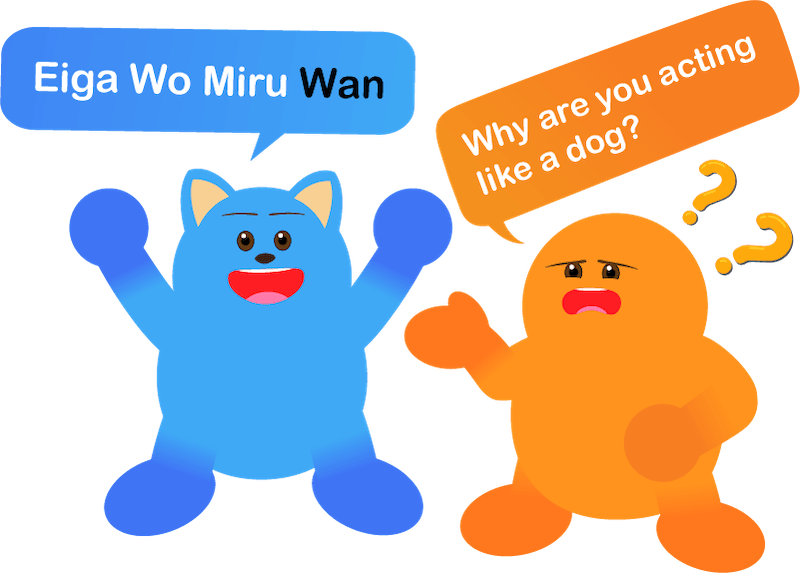Seiya
Wa
Eiga
Wo
Miru
Seiya watches a movie
We talked about particles earlier but there are also particles that we use at the very end of a sentence or a phrase to add emotion, emphasis, wonder, admiration, or doubt.
It is used to form questions too.
If you have already watched Japanese anime or drama, you might have noticed that Japanese phrases often end with "Ne” or “Yo”.
These are the ending particles.
In my opinion, this is one of the most complicated and confusing things for Japanese learners and it is very hard to master.
I have heard so many Japanese learners use them wrong even if they already speak good Japanese.
To give you an idea of what they are and how they can change the nuance of the sentence, let’s look at some examples:
Seiya
Wa
Eiga
Wo
Miru
Seiya watches a movie

Used to point something out, or to confirm in a friendly way.

Used to wonder or ask oneself. When we think or talk to ourselves, we often use this particle.

It can make the speaker come off as more masculine, assertive, and sometimes even a bit aggressive or cocky, depending on the context.
There are so many more ending particles and we use them all the time in daily conversations.
It’s actually more common to say phrases with an ending particle than without it.
While it is hard to master how to use them, you can easily understand what the speaker is trying to say by paying attention to the tone of their voice and also how they say it.
If you are learning phrases by watching anime, you have to be careful with the ending particles that anime characters use.
Anime characters often use original ending particles or use something that we rarely use in our daily conversations.
So, if you pick up some phrases with their ending particles that no one really uses in daily life and if you use them, you can sound very silly.
For example, Naruto often says Dattebayo and if we use this in our example sentence, it will be:
Seiya
Wa
Eiga
Wo
Miru
Dattebayo
It has almost the same meaning as:
Seiya
Wa
Eiga
Wo
Miru
Yo
But it sounds a little aggressive and only Naruto uses it. So if we hear someone say that, we recognize the person as a big Naruto fan.
Another example: dogs bark "Wan Wan” and cats cry "Nyā” in Japanese.
So, many dog characters in anime end their sentence with Wan and cat characters with Nyā.
Seiya
Wa
Eiga
Wo
Miru
Wan
Seiya
Wa
Eiga
Wo
Miru
Nyā
They don’t add any special meanings but when we hear or read even without looking at the image, we can recognize that a dog or a cat is talking.
So if you are a big fan of anime or manga and learning Japanese by watching them, pay attention to those ending particles and make sure you don't sound like a dog talking!
